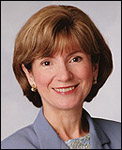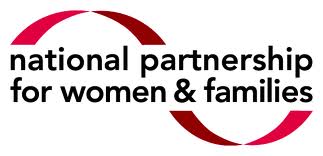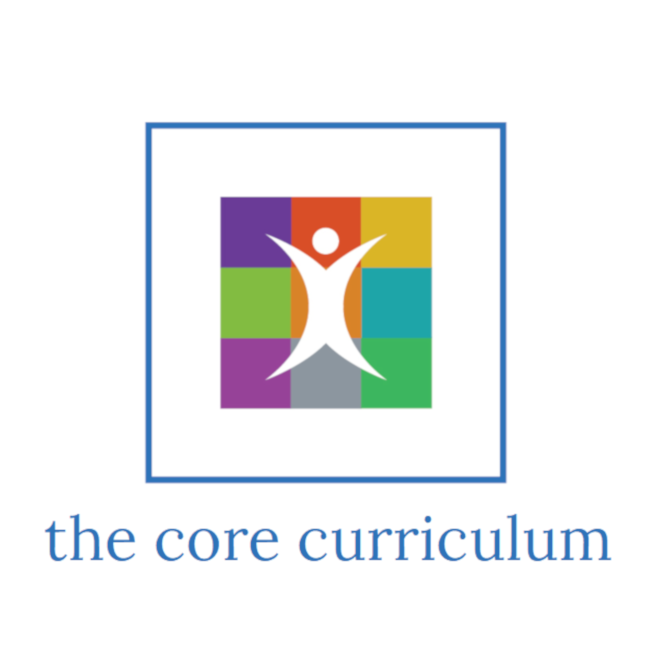Collaborative Consumer Engagement
In the New Business of Healthcare patients go from passive recipients to active participants. How can you leverage the “voice of the customer” in your ongoing improvement initiatives? Debra L. Ness, President of the National Partnership for Women & Families, shows you how to engage patients and their families and make them an integral part of your strategic planning.
Course Overview
Presenter: Debra Ness
National Partnership for Women & Families
Ms. Ness will provide a fundamental understanding and the basis for practical application of collaborative consumer engagement.
Time to view this course is 55 minutes.
Course Learning Objectives
Upon completing the course you will:
- Understand the business case for collaborative consumer engagement in health care facilities and how it leads to the goals of the Triple Aim—better care, better health, and lower costs.
- Define “consumer engagement” and learn strategies and tactics for engaging consumers in meaningful, collaborative, and productive ways.
- Learn best practices from other facilities across the country that have implemented collaborative consumer engagement and yielded successful results
Time to complete the course is approximately 105 minutes.
Presenter: Debra Ness

For more than three decades, Debra Ness has been a strong advocate for fairness and social justice. Drawing on an extensive background in health and public policy, Ness possesses a unique understanding of the issues that face women and families at home, in the workplace, and in the health care arena. Before assuming her current role as president, she served as executive vice president of the National Partnership for 13 years. Ness has played a leading role in positioning the organization as a powerful and effective advocate for today’s women and families.
In addition to leading the Campaign for Better Care — an initiative funded by The Atlantic Philanthropies that is working to ensure that reform is implemented in ways that improve health care for the oldest, sickest and most vulnerable patients — Ness serves on the boards of some of the nation’s most influential organizations working to improve health care.
She is a member of the Board of Directors, and chairs the Consumer Advisory Council, of the National Committee for Quality Assurance (NCQA), the nation’s leader in accrediting health plans and promoting quality throughout the health care system. She serves on the Board of the National Quality Forum (NQF), established by the President’s Advisory Commission on Consumer Protection and Quality in the Health Care Industry to develop and implement a national strategy for healthcare quality measurement and reporting. Ness co-chairs the Consumer-Purchaser Disclosure Project, a group of leading consumer, employer, and labor organizations working to improve the quality, accountability and affordability of health care. She sits on the Steering Committee of the AQA and on the Board of the National Priorities Partnership (NPP). She is on the Quality Alliance Steering Committee (QASC) and co-chairs the QASC Patient-Reported Measurement Workgroup. Ness also serves on the Aligning Forces for Quality (AF4Q) National Advisory Committee (NAC). She recently completed service on the Board of Trustees of the American Board of Internal Medicine Foundation (ABIMF), which works to advance medical professionalism and physician leadership in quality assessment and improvement.
In addition, Ness serves on the Executive Committee of the Leadership Conference on Civil and Human Rights and co-chairs its Health Care Task Force. She also serves on the Board of Directors of the Economic Policy Institute (EPI) as well as EMILY’s List.
Ness graduated summa cum laude from Drew University with a bachelor’s degree in psychology and sociology. After completing graduate work in social welfare and public health policy, she received her Masters of Science from Columbia University School of Social Work. She worked in numerous capacities at the Service Employees International Union, first as director of adult education and career development efforts, and later conducting strategic planning and organizational development programs for local unions. In 1986, she moved to head up field operations for the National Abortion Rights Action League (NARAL), where she worked to revitalize the organization’s grassroots political capability and affiliate network. She became NARAL’s deputy director in 1989 and helped transform the organization into a major force in American electoral politics. She joined the National Partnership in 1991.
Ness lives in Rockville, Md., with her husband, Sydney Martin.
Developing Organization: The National Pertnership for Women and Families

Taking action since 1971, the National Partnership for Women and Families has been changing the world in ways that make life better for women and families.
Our goal is to create a society that is free, fair and just. Where nobody has to experience discrimination, all workplaces are family friendly, and no family is without quality, affordable health care and real economic security.
Today, we celebrate four decades of accomplishments. And, with your help, more victories are ahead.
1971: A small group of extraordinary women forms the Women’s Legal Defense Fund (WLDF), later called the National Partnership for Women & Families.
1976: WLDF forms the Campaign to End Discrimination Against Pregnant Workers.
1977: WLDF litigates and wins Barnes v. Costle. The decision establishes, for the first time, that sexual harassment is illegal job discrimination.
1978: The Pregnancy Discrimination Act is enacted, thanks in large part to the work of WLDF. This legislation clarifies that discrimination in the workplace on the basis of pregnancy, childbirth, and related medical conditions is illegal.
1982: WLDF launches a powerful public education campaign on wage discrimination, It Pays to be a Man.
1984: WLDF spearheads efforts to overhaul the nation’s federal child support enforcement program.
1985: The Family & Medical Leave Act, written by a WLDF staff attorney, is introduced in Congress. WLDF begins the nine-year fight to enact it.
1988: National child support reforms go into effect, thanks in large part to WLDF’s work.
1991:The Civil Rights Act of 1991 is enacted. The WLDF helped lead the successful effort to pass this critical legislation, which reaffirms that gender discrimination in the workplace is illegal.
1993: WLDF secures enactment of landmark federal legislation that has allowed tens of millions of workers to take time off for medical emergencies, childbirth, or caregiving. President Clinton makes the Family & Medical Leave Act the first bill he signs into law.
1998: WLDF changes its name to the National Partnership for Women & Families, and releases a national survey finding that most Americans believe pressures on working families are getting worse.
1999: The National Partnership launches its Campaign for Family Leave Income.
2002: The National Partnership’s technical assistance and national leadership on work and families issues help California become the first state to pass a comprehensive paid family leave law.
2003: The National Partnership launches Americans for Quality Health Care, a major initiative to improve health care quality and affordability.
2004: The National Partnership launches its Campaign for Paid Sick Days and releases a groundbreaking report on employment discrimination in America today.
2005: The National Partnership leads a successful coalition initiative in support of federal legislation to improve patient safety.
2006: The National Partnership helps local activists in San Francisco secure the first ever paid sick days ordinance in the United States.
2007: The National Partnership’s national leadership and technical assistance on work and families issues help Washington become the second state to pass a paid family leave law.
2008: The National Partnership is instrumental in New Jersey becoming the third state to provide paid leave, and leads the fight to block harmful Bush Administration changes to the Family and Medical Leave Act and to regulations affecting women’s access to reproductive health services.
2009: National Partnership leadership helps win enactment of the Lilly Ledbetter Fair Pay Act and the Children’s Health Insurance Program Reauthorization Act, repeal of the global gag rule, and passage of key health information technology provisions in the American Recovery and Reinvestment Act.
2010: The National Partnership launches the Campaign for Better Care, helps pass a historic health reform law that promotes quality, coordinated care and prohibits punitive, predatory and discriminatory insurance practices, and helps win confirmation of Supreme Court Justice Elena Kagan.
2011: The National Partnership helps win paid sick days laws in Seattle and in Connecticut, which becomes the first state to adopt such a measure, and helps convince lawmakers to block numerous extreme anti-choice measures passed by the House. First Lady Michelle Obama is keynote speaker at the Annual Luncheon.
2012 & Beyond: Together, we’ll make America more fair and family friendly and help ensure that everyone has access to quality, affordable health care.

